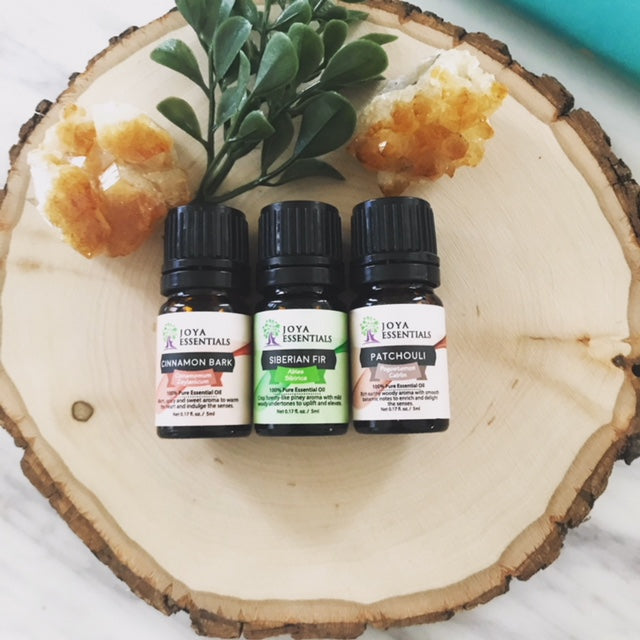Essential Oil Safety


Essential oils offer a great deal of therapeutic benefits, among the most notable are their immune supporting and emotionally balancing properties. Incorporating aromatherapy and using essential oils in our daily routine is a great way to support health, wellness and natural living and when used safely, can be very effective, beneficial and rewarding.
It is important to remember, however, that essential oils are highly concentrated aromatic compounds that contain naturally occurring chemicals from plant sources. In general, when using essential oils it is best to exercise common sense and caution.
Below are a list of general precautions and safety guidelines for using essential oils.
Precautions
- Keep out of reach from children and pets.
- Do not use photosensitizing oils prior to going to beach or sun tanning booth. These oils include Bergamot, cold pressed citrus oils such as lemon, grapefruit, lime and bitter orange.
- Keep essential oils away from the eyes, ears or mucous membranes.
- Any person with allergies, asthma or sensitivities should exercise extra caution. Always perform a skin patch test first to watch for a reaction. You can do a patch test on the forearm and wait approximately 15-20 minutes.
- Essential oils are highly flammable. Keep away from fire, candles, matches, & gas stoves.
Safety Guidelines
- Always dilute any essential oil with a carrier oil (jojoba, coconut, etc) prior to applying topically on the skin. As a general rule, use 5-20 drops of essential oil to 2 tablespoons of carrier oil.
- If essential oil accidentally gets into the eyes, ears or mucous membranes, flush with a carrier oil and use a cotton ball to wipe off any excess. Do not rinse eye with water until irritation has subsided. If this protocol does not work, seek medical advice.
- If an essential oil or blend irritate your skin, wash it off with soap and water and apply a carrier oil to the affected area.
- People with epileptic seizures should avoid using the following oils: Hyssop, Sage, Ho Leaf, Wintergreen, Birch, Rosemary, Yarrow, Lavandin, and Spike Lavender.
- Small children, elderly, pregnant women and individuals with serious health conditions should use no more than a 1% dilution on any blend, or about 5-6 drops of essential oil to 2 tablespoons of carrier oil.
- Do not use old, or oxidized essential oils as they can cause skin irritation and sensitization. In general, if the aroma of the oil is foul or has changed significantly from its original aroma, then chances are it has oxidized. Discard any oxidized oils.
- Do not ingest essential oils unless you are under the care of a trained clinical aromatherapist who understands pharmacokinetics and pharmacodynamics as they relate to drug interactions.


